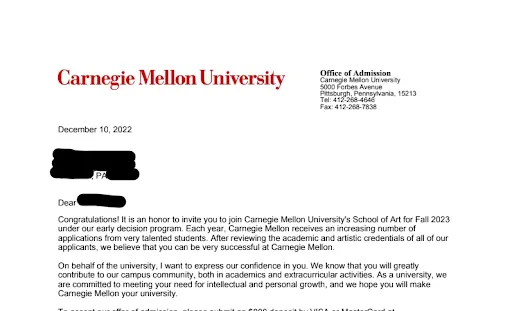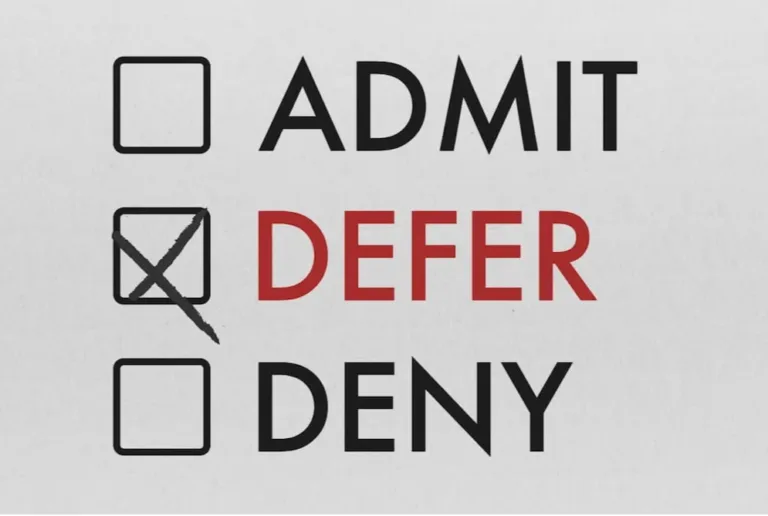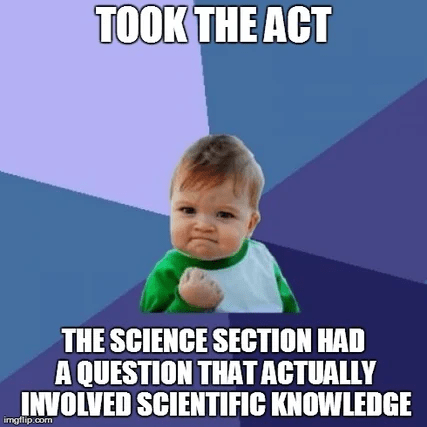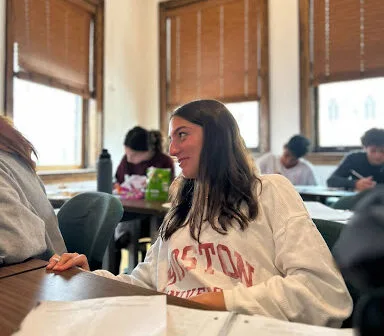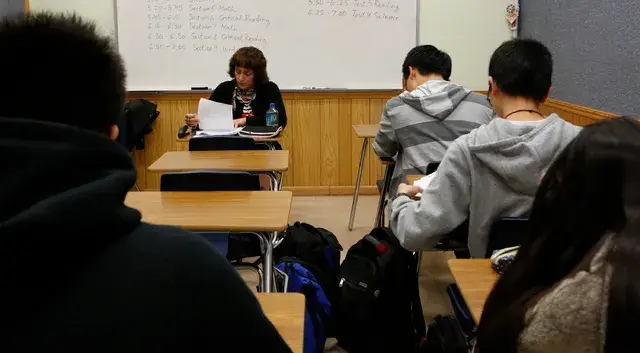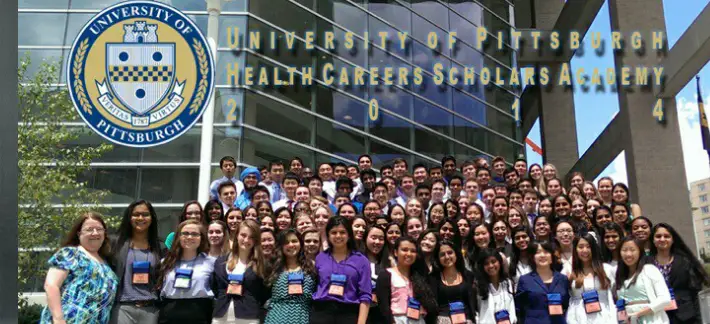
The University of Pittsburgh offers an intensive month-long program for current sophomore or juniors (who are at least 15 years old) high-school students interested in careers in health care: the Health Career Scholars Academy or more commonly known as UPHCSA (students refer to it as “UP-SKA”. This competitive program accepts roughly 25% of about 400 applicants, and those selected engage with college-level lectures, interactive lessons, and shadowing experiences in a variety of medical settings. Though the program is tuition based, there are scholarships and financial aid available for applicants needing financial assistance.
Before diving into the essays, we recommend getting to know the UPHCSA program history and details. Consider your interests and the four course tracks available to students — which would complement your experience history as well as your career goals in the health field? It is also helpful to investigate the University of Pittsburgh Medical Centers, since UPHCSA is hosted at various UPMC facilities, and the researchers and faculty at these facilities serve as your mentors. Let’s examine the application and the essay prompts and how you can authentically set yourself apart from other applicants.
What is required for the UPHCSA application?
-
- Personal Data Sheet: includes Student Information (name address, etc) and three essays.
- Introduce yourself to the selection committee
- Provide a resume of your extracurricular activities including volunteer work
- Essay addressing a current health care topic.
- Science Teacher Reference Form: have a current, or past science teacher evaluate you (only one needed)
- Activity Adviser/Teacher Reference Form: have a current teacher (in any subject except science), extracurricular adviser, or volunteer/service coordinator evaluate you
- School Counselor Recommendation Form: counselor provides absence/tardy information, standardized test score information (if available), and a grade transcript.
- Total cost for the program is $3500 but they encourage families in need to complete and send with Financial Aid (if requesting).
- Note: If you are accepted into the program, you are obligated to attend ALL sessions as a resident for the entire program. No absences are allowed, including leaving early or starting late.
- Personal Data Sheet: includes Student Information (name address, etc) and three essays.
What are UPHCSA’s prompts?
Required: Students are required to provide a narrative statement that is a maximum of two double-spaced pages in 12 pt font. The prompts are below:
Prompt 1: Narrative Statement
Introduce yourself to the selection committee. This statement should reveal your personality, work style, why you are interested in UPSCHA, special interest and experiences, and reveal your interest in a health care career.
Prompt 2: Chief Essay
Students should also respond to one of the following prompts. The response should be a maximum of two double-spaced pages in 12 pt font.
-
Select a current issue related to health care. Explain your interest in the issue; discuss the problems, and possible approaches or solutions you recommend. You may select one topic from the suggestions below or one of your own choosing (the topic must be health care related).
-
Health Care Issues in My Local Community (identify one issue)
-
Ethics and Health Care
-
The Biggest Challenge Facing Health Care Professionals Today
-
Select and discuss a national health care concern that also affects your local community. Provide evidence that this is a legitimate concern and propose a solution to address the problem.
How to write the supplemental essays for the University of Pittsburgh Health Career Scholars Academy
How to write UPHCSA’s Essay 1 + Example Essay
This is a significant essay within the application because all students must respond to the prompt to be eligible. The application readers are trying to build a community of students that can learn and work together, and who can also successfully collaborate with the program’s mentors.
This means that you need to demonstrate your character to the reader; a helpful way to go about this is choosing desirable character traits and pairing them with an anecdote, event, or memory from your life that clearly exemplifies this character trait. In so doing, you will highlight that you have actively and intentionally shaped your character.
The other critical element of this essay is demonstrate an interest in health care or medical professions. It may seem obvious, but the admissions readers will want to know that you have an established interest in health care, rather than simply applying for the program because it is something to do. This means that you should highlight any extracurricular activities, such as clubs, volunteering, or internships, that have leant you experience within health care. You might also reference experiences in health care-related classes that have sparked your interest.
Pro-tip: if you can blend the character narratives with examples that demonstrate an interest in health care, you will have nailed this essay!
Introduce yourself to the selection committee. This statement should reveal your personality, work style, why you are interested in UPSCHA, special interest and experiences, and reveal your interest in a health care career.
Flames dance, casting eerie shadows against the dark of the night as the acrid scent of smoke fills the air. Gripping the hose tightly, I maneuver around the burning wreckage, aiming jets of water at the heart of the fire.
At the scene of the blaze, the heat is intense, the danger palpable: a building engulfed in flames, threatening lives and property. “Elena, pass me the thermal imaging camera!” shouts my firefighting captain, Maria.
I scan the equipment until I locate the camera, my mind racing through the protocols I’ve learned. With steady hands, I pass it to Maria, knowing that each action we take could mean the difference between safety and catastrophe. Maria swiftly surveys the building, identifying hot spots and potential dangers. Thanks to her quick thinking and our team’s coordination, we manage to contain the fire before it spreads further: disaster averted.
As a volunteer firefighter in training, I am no stranger to high-pressure situations. The sound of sirens tearing through the night fills me with a sense of urgency, driving me to apply my training and push my limits. My experiences in firefighting have taught me the importance of perseverance, empathy, and service to others. As I embark on my college journey, I intend to carry these values with me, pursuing studies in environmental science and community development.
My determination stems from my upbringing. Raised in a family deeply rooted in environmental activism, I have been instilled with a sense of responsibility to protect and preserve our planet. My parents, both avid conservationists, dedicated their lives to advocating for sustainable practices and protecting natural habitats. Their passion and commitment have shaped my own values, motivating me to make a positive impact on the world around me.
Additionally, my involvement in the arts has honed my ability to perceive and understand the world around me. As a photographer, I have learned to observe the subtle nuances of light and shadow, capturing the beauty and complexity of nature. This attention to detail has proven invaluable in firefighting, where keen observation can mean the difference between success and failure. Whether I am assessing the spread of a wildfire or identifying potential hazards, my artistic eye allows me to approach each situation with clarity and precision.
My passion for environmental conservation and community service has led me to take on leadership roles within my school and local community. As president of the Environmental Club, I spearheaded initiatives to reduce waste and promote sustainability, organizing beach cleanups and tree planting events. Through these efforts, I have sought to inspire others to take action and work towards a more sustainable future.
Volunteering as a firefighter trainee is just the beginning of my journey towards becoming a capable and compassionate environmental advocate. With each call, I am reminded of the challenges that lie ahead and the importance of continuous learning and growth. I am eager to embrace these challenges and continue to make a difference in the world, knowing that the sound of sirens will someday lead me to new opportunities to serve and protect.
Pittsburgh Prep’s Expert Analysis:
Engagement with High-Stakes Environments:
- The author vividly describes their involvement in firefighting, portraying the intensity of battling flames and the urgent need to contain a potentially life-threatening situation. This engagement with high-stakes environments highlights their willingness to confront challenges head-on and their capacity to remain composed under pressure.
Personal Background and Identity:
- The author shares insights into their personal background, emphasizing their upbringing in an environmentally-conscious family deeply rooted in activism. This identity as the child of conservationists informs their own passion for environmental stewardship and serves as a driving force behind their commitment to firefighting and community service.
Skill Development and Transferable Skills:
- The author reflects on their experience in photography and its role in developing their observation skills, which they find applicable in firefighting for assessing situations and identifying potential hazards. This demonstrates their ability to transfer skills from one domain to another, underscoring their adaptability and resourcefulness.
Community Engagement and Leadership:
- The author showcases their leadership role in the Environmental Club, where they initiated various initiatives to promote sustainability and inspire others to take action. This demonstrates their dedication to community engagement and their capacity to mobilize others towards common goals, highlighting their role as a catalyst for positive change within their community.
How to write UPHCSA’s Essay 2 + Example Essay
- Health Care Issues in My Local Community (identify one issue)
- Ethics and Health Care
- The Biggest Challenge Facing Health Care Professionals Today
Sample Essay
I believe that the approval process for pharmaceuticals is often biased and discriminatory. An important example is the way that drugs are tested: experimental populations are often overwhelmingly white and male, leaving other populations, such as different races or those with preexisting health conditions, without the safeguarding and protection that you might expect from CDC. Testing procedures have not been updated since 1993 and trends for representing a variety of bodies, ages, sexes, and races still leave much to be desired. As an Indian American male, I find it shocking that my cultural background, specific health concerns related to race and ethnicity, or culturally-specific body norms may not have been considered — if I receive a common medication, it may not work effectively because it was not designed and tested for people of certain ethnicities. I hate to think that my grandfather’s Alzheimer treatment could have been more effective, if only he was of a different ethnic background. The knowledge that race- and sex-based discrimination extends even into medical fields fuels my desire both to be a medical doctor as well as to shift the accepted standards in medical research.
As a physician, I would like to resolve this problem by advocating for testing protocols to be much more inclusive. This would require diversifying subject pools, creating and requiring replication studies, and ensuring cross-cultural result replication. UPHCSA’s program, specifically in Global Health, offers an ideal venue for my advocacy work to take shape since I can learn about cross-cultural ethics in medical settings. I hope to learn more about CDC guidelines and approval processes, IRB approval, and medical research design. My understanding of these processes will be greatly improved by the lectures, interactive lessons, and shadowing opportunities offered by UPHCSA — I cannot wait to indulge my curiosity through in-depth conversations with experts in medical research. By learning about the process underlying pharmaceutical approval, I will be better prepared to offer further solutions.
One of the main issues in need of resolution is the public’s education about medical discrimination. Through UPHCSA’s program in Public Health, I hope to learn the best practices when speaking to the media about health security trends and the art of crafting public health statements that can be understood by all. Access to quality healthcare is a basic human right, and I am ready to fight for equity through my time at UPHCSA.
Pittsburgh Prep's Expert Analysis
- Specific focus. This student does an excellent job of highlighting one very specific issue in which they have interest. While it can be tempting to list out several different areas of interest to demonstrate your passion for medicine, this can feel a little random to readers. We recommend selecting one interest and displaying a depth of knowledge. In this case, the student demonstrates that they have independently researched the problem on their own, and the solution they present is nuanced—they clearly recognize the solution is complicated and will require a breadth of knowledge that they can get from UPHSCA.
- Demonstrate personal stake. The student clearly states the problem, discriminatory design in medical research, and almost immediately connects the problem in two ways to their personal story. First, they highlight their own background as an Indian American male, since their racial and ethnic background put them outside of the normal subject pool for medical research. Then, they provide a secondary anecdote about the potential ill-effects of such discriminatory design on their grandfather. In so doing, the student very clearly points out that this concern has immediate impacts, and they also grab the reader’s empathy and sympathy.
- Highlight diversity. This is an interesting example because the student uses their identity background as a part of their argument for impact. This is a subtle way to differentiate yourself if the admissions readers are interested in creating a diverse pool of students—can you think of a medical issue that is related to your background? It may be useful to start your essay with this question and build it out from there.
- Articulate why UPHCSA is part of your solution. This student has done an excellent job of articulating two elements that could contribute to solutions. First, they’d like to learn about research design and the CDC approval process—they view participation in the Global Health program as contributing a cross-cultural perspective that might shape this. Second, they’re interested in raising awareness about such discriminatory design—they view participation in the Public Health program as a perfect fit for such advocacy work and potential intervention.
How to write UPHCSA’s Essay 2 + example essay
Option a: Scientific or Mathematical Achievement
Select and discuss a national health care concern that also affects your local community. Provide evidence that this is a legitimate concern and propose a solution to address the problem. (350-500 words recommended)
This essay requires you to think about healthcare on both a national and local level. This means that the readers want to see that you’re interested in using UPHCSA to make a broader impact; they see their students as leaders that can create national change. The readers want to know that you care about and invest time in creating change, so this is a great opportunity to discuss ways you have contributed to your local community’s health. But don’t stop at what you’ve already done. Think big! Where can your efforts go next? How have prior experiences prepared you to take that next impactful step? Admissions readers will be impressed that you have thought forwards about your future impact in medicine.
Sample Essay
I have a strong interest in advocating for underrepresented women, and I firmly believe that access to feminine care is a fundamental human right. Period poverty is defined by the National Institute of Health as the “lack of access to safe and hygienic menstrual products… and inaccessibility to basic sanitation services or facilities” is a healthcare issue that affects an estimated 500 million people around the world. In the United States alone, 14% of women have experienced period poverty, according to the World Health Organization. This global crisis is affected by the expense of health supplies, lack of access to sanitary facilities, and a dearth of education about menstruation and hygiene. Period poverty has been exacerbated by the COVID-19 crisis, and the statistics continue to rise about how many women each year are affected. It is truly disheartening that an issue that affects 50% of the world’s population could receive such little research and press.
I have witnessed firsthand how local activist efforts can make an immediate difference for young women who lack access to affordable medical supplies. In my local community near Pittsburgh, thousands of women are affected by period poverty each year. As a volunteer for Pittsburgh Periods, I have had the privilege to not only raise awareness within my local community for period poverty but also connect like-minded advocates through events with my Girls Only Leadership Development group. Through my volunteer work, I have developed ideas for public health campaigns aimed at educating women about menstrual care and connecting them to local resources that provide access to supplies. I would like to expand my knowledge and advocacy through HCSA’s Public Health program, during which I can learn about effective campaign design, community outreach, and crisis intervention. My legislative solutions to period poverty, such as authoring a bill banning the use of a Value-Added Tax on menstrual supplies, would be bolstered by conversations with experts in the field, and I hope to find a collaborating researcher who might help me author such a bill. I am excited to join the fight for women’s reproductive and health rights through my experience at HCSA.
Pittsburgh Prep's Expert Analysis
- Topic selection. This is a wonderful moment to highlight underrepresented topics in medical research or public education. In this case, the student has selected a topic that could be somewhat polarizing (women’s reproductive rights) and demonstrated a neutral, reasoned argument about the subject matter. The student shows that when it comes to women’s health, they are not interested in the politics surrounding reproductive rights but rather the dramatic and negative effects that neglecting such topics can have. The student is tipping their hand in a subtle way about their own personal political beliefs, which is helpful for the admissions reader interested in building a diverse student pool with a variety of belief systems.
- Cite specifics. This student does a great job of showing her independent research and knowledge of scholarly resources. They cite a definition of their topic and several staggering statistics which underscore the importance of the problem. In so doing, the student highlights their stake in the problem while demonstrating expertise. Further, they show that they have investigated resources in their local area and networked with women affected by the problem. This gives them firsthand knowledge of the issue and its impacts.
- Demonstrated action. While this student has some great ideas for future work and solutions to their chosen medical problem, they immediately show that they have already begun to address the issue through volunteer work. This demonstrates drive and initiative, two character traits that are key to entering and sustaining a career in the medical field. Further, the student can speak more clearly about potential solutions because they have direct experience working with people and considering their healthcare needs.
- UPHCSA is part of the solution. This student recognizes that their volunteer work is not enough and sees public advocacy as a part of the solution to the identified problem. They clearly connect UPHCSA’s Public Health program with a direct intervention: legislative action. However, they know they cannot successfully author legislation alone; in this way, the mentor with whom UPHCSA connects the student is a vital part of the solution. This is a clear demonstration that their admission to the program would have a larger national impact, which is what the admission readers are looking for.
Need guidance with your essay composition?
We can help. Contact us at Pittsburgh Prep and find out more about our essay composition services. We do not utilize AI or ChatGPT, and help you to flesh out your personal narrative that is authentic, meaningful, honest, and unique.

